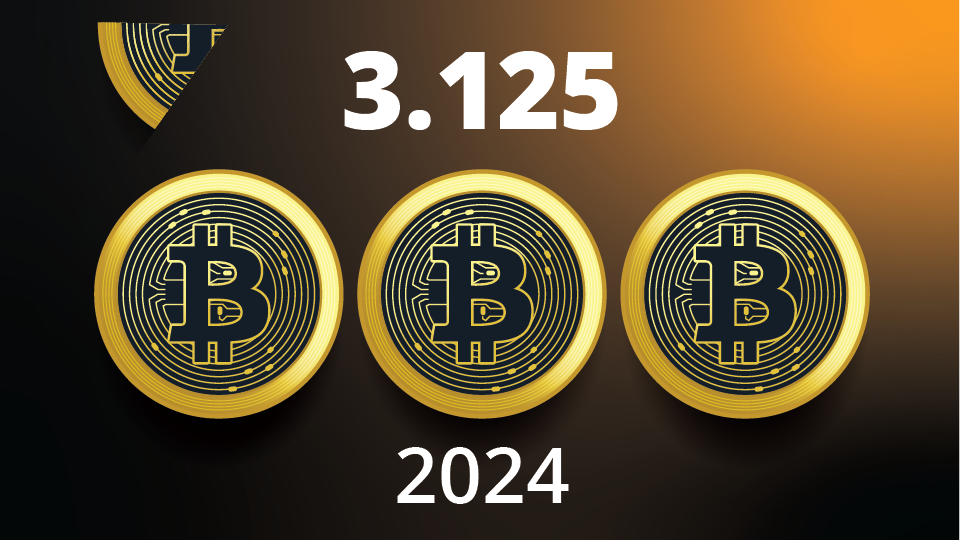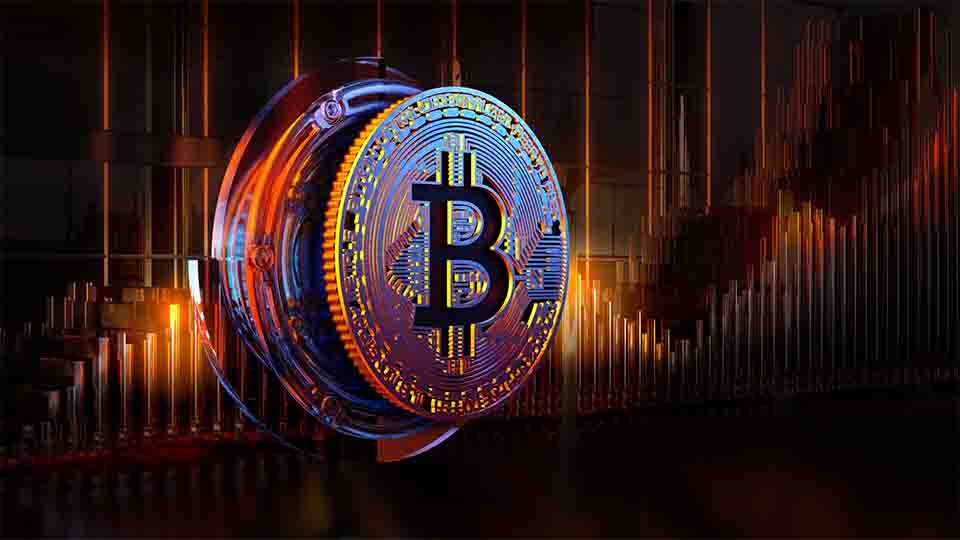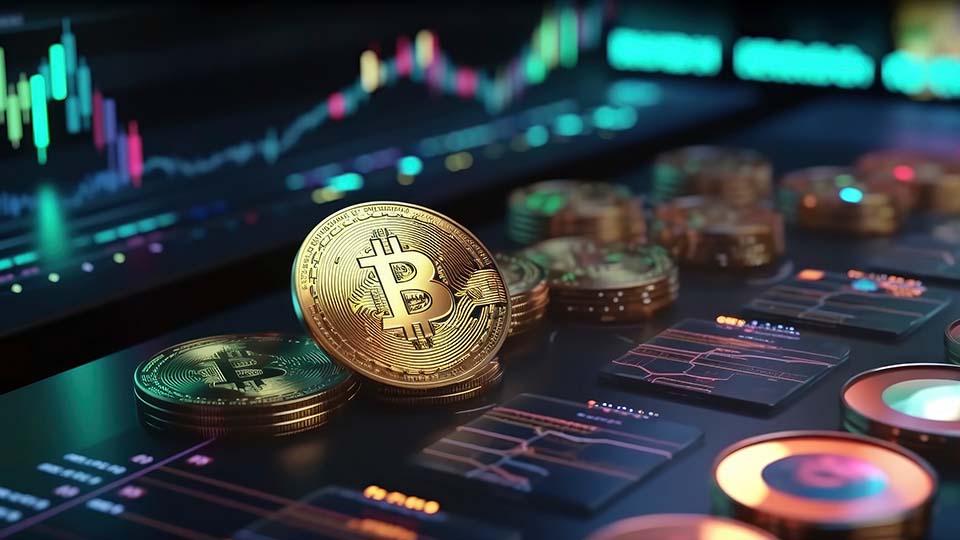Bored Games: Play to Earn Games and the Next Gaming Revolution
July 11, 2022
Read Time 8 MIN
Play to earn games (P2E) have the potential to become one of the major building blocks for the open metaverse. P2E represents a new gaming business model, which empowers gamers by providing ownership benefits for digital in-game assets.
In this article, we will explore:
- What P2E games are and why they matter.
- The benefits of P2E games compared to traditional games.
- An innovative P2E project that curates blockchain games.
Play to Earn Games – A Step in a New Direction
Play to Earn allows gamers to earn cash, prizes, digital assets and more by playing or otherwise participating in various games. This business model for crypto games represents an entirely new economic framework for video games, which allows players to participate economically in the success of a game.
Game as Product & Game as Service Business Models
In the current dominant business models (Game as Product and Game as Service), the economic benefits only flow in one direction – towards the publisher. So even though many Game as Service games are free to play, the game is built to entice players to spend money on in-game items like skins, weapons and battle passes. There is no flow of benefits back to the gamer, besides the fun and enjoyment of playing a game, and the potential for some type of community involvement.
In P2E, the benefits flow both ways. The publisher/project makes money when players buy into the game by purchasing game assets (usually in the form of NFTs or non-fungible tokens). In this scenario, the player can sell his assets to others on an open marketplace, potentially at a profit. The player can also earn digital assets, like tokens, by playing or participating in the game itself. Ownership of some assets gives the owner the right to receive new assets if and when they are brought to market. Finally, P2E communities tend to be much more highly-engaged than the traditional video game communities.
For instance, by playing the upcoming AIFA game from Altered State Machine, players will be able to win unique prizes which may include new characters (NFTs), ASTO (ASM governance token), and more. Ownership of the ASM Genesis Brains has also provided owners the ability to mint other assets, like Party Bears. The key here is that players are becoming empowered economically and are incentivized to buy and hold digital assets because of the benefits inherent in future drops.
Play to Earn? More like Play to Own!
P2E games are having an ever-expansive role in the Metaverse as they bring their communities into the Web3 world and connect their own ecosystems to an open, interoperable ecosystem. The most popular games in the world, whether it’s World of Warcraft, Call of Duty, or Fortnite, are closed systems (aka walled gardens). Within a walled garden, gamers do not enjoy true ownership of any of their assets or purchases. An asset or skin bought in Fortnite cannot be transferred to Call of Duty or World of Warcraft. These assets are specific to a single game!
Interoperability is one of the key features of the budding metaverse. Blockchain technology bridges this gap, as it allows ownership of assets to be proven and transferred from owner to owner.
The ownership of assets is built on the back of NFTs. The ERC-721 Protocol has enabled a way to tokenize almost every aspect of a game, from the land where the game is played, to the character, their wearables (thinks shoes, watches, shirts) and the vehicles they choose to travel in. All of these assets make up the building blocks of the metaverse, and all of these assets can now be owned by players!
Traditional Gaming Pushback
Despite all of the perceived benefits inherent in the new P2E business model, many traditional gamers (think Xbox, Playstation and PC gamers) have been vehemently anti-NFT. Many gamers see NFTs as a way for traditional game publishers to further monetize assets. Many gamers have a very negative view on micro-transactions, which are extremely common in the current gaming economy.
A few AAA-publishers1 have already tried and failed to launch NFT projects or collections tied to their games, only to suffer immense backlash leading to the project being shelved.
It is our view that:
- P2E gaming built upon blockchain technology will play a huge rule in the future of video gaming.
- Big publishers need to further educate and test-trial NFT projects to allow for integration of this new gaming model into the broader video gaming community.
We predict that at some point, the largest publishers will successfully launch an NFT project that is integrated into a flagship product, facilitating ownership and trading of digital items. While the timing is unclear, it’s obvious that the largest developers and publishers are working to make this happen. Conversely, many game developers with extensive, successful track records are now working primarily on P2E games, meaning it’s only a matter of time before P2E is widely accepted and adopted by a large number of gamers.
Which Games Should We Play?
This is the question that Bored Elon Musk or Bored, a pseudonymous twitter personality with 1.7 million followers, is attempting to answer. Bored recently launched an NFT project called the Bored Box. The Bored Box is a curated NFT package of P2E assets. In launching a curated basket of games, Bored is attempting to make it easier for gamers to find the best P2E games on the market, and remove some of the burden from players to find the best games.
Bored Box
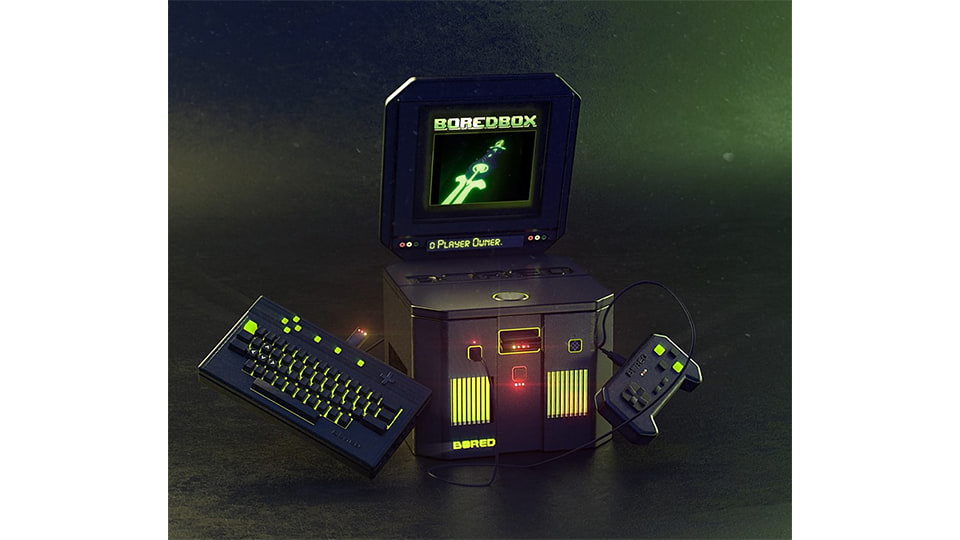
Source: Bored Box.
This project is attempting to spoon feed its users with the best experiences based on Bored’s vast knowledge of the video game space. The curation actually works in both directions (much like the economic benefits). One feature of many NFT projects is characterized by people flipping and trading assets on the open market. Bored is also bringing value to the game developers, who want long-term community members (not just traders).
Bored is curating a list of gamers who know how to connect a wallet and, at the same time, love video games. That list is quite valuable to game makers, as it is their target audience.
What’s in the Bored Box?
Let’s start with the Box. It’s a genesis asset, which means it’s the first drop of this project and therefore quite special. Typically, upon opening a box of NFT assets, the assets are dropped into the wallet, and the box itself is burned, meaning it disappears from the crypto wallet. Upon opening the Bored Box, the assets are dropped into the wallet, and then the opened box remains (as opposed to being burned). The opened box then serves as a ticket for future drops and mints, meaning that box-holders will have first-dibs on future NFT drops when they occur (another economic benefit for the NFT holder).
ATEM Car Club
The Bored Box contains five different assets upon opening. Let’s touch on one of the five games that Bored has specifically chosen for this genesis asset: ATEM Car Club.
ATEM is attempting to redefine car culture in the modern era. The ATEM Car Club NFT is both a membership to their car community and the genesis asset for all future mints, including the key to their upcoming racing game called Burndown.
Membership to ATEM will include the club’s future purchases of collectible cars (actual cars – not digital ones) that members may get access to. Additionally, participants have already formed racing teams such as R.R.R. or Road Runna Racing, a group dedicated to the ATEM’s mission and pooling team NFT assets to compete with other teams.
Bored made this membership even more special for owners of the Bored Box. He worked closely with the team to create a special vehicle, a Mars Speeder that ATEM members can leverage in races. This Mars edition of a race car added immediate value to owners of the Bored Box. It’s a unique asset because it is tied directly to the Bored Mint, which has given the Mars Speeders a slight premium on secondary exchanges.
ATEM Membership Card – Mars Speeder Edition
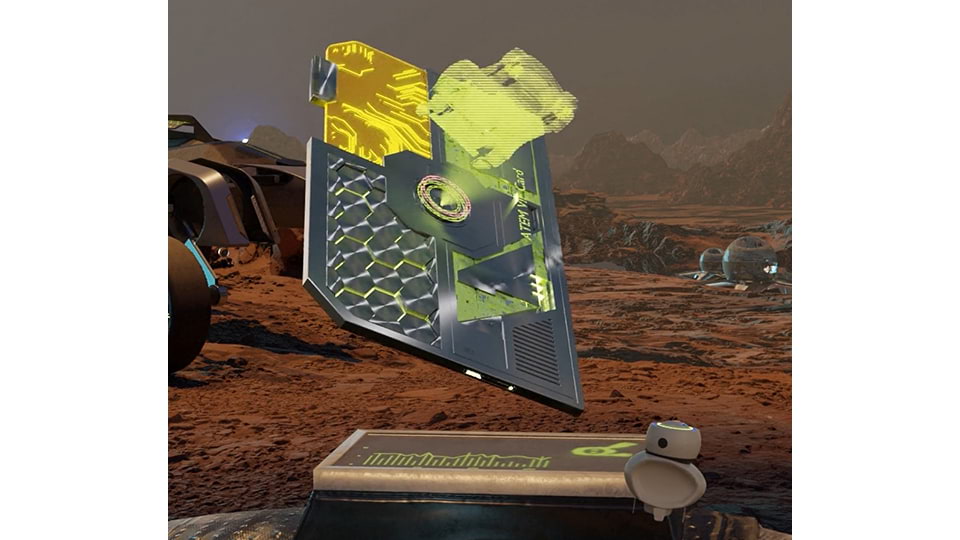
Source: ATEM Car Club.
ATEM Enables Ownership in Web3
It’s worth reiterating that the ownership of the ATEM membership cards is central to their thesis and planned success. The Bored Box ATEM membership card provides the initial foundation of owning unique digital assets. Each card holder will eventually be dropped a race car, will be given a 2nd Generation Brain NFT from Altered State Machine (think Artificial Intelligence for your car) to drive the vehicle, and track NFTs for customizing race tracks with friends and competitors. This enables players to grow their assets and worth, as ATEM grows with their community.
Key Takeaways on Play to Earn
Play to Earn gaming represents the next evolution in how gamers play video games and interact with other players in the broader community. P2E introduces some key features to the gaming ecosystem, most importantly the concept that the players actually own in-game items within a broader metaverse, which is underpinned by blockchain technology and NFTs.
This new gaming paradigm has given rise to a number of exciting NFT projects, including the Bored Box, which aims to curate the best P2E games and an active community of highly engaged players. Despite some pushback from the traditional gaming community, we believe that play to earn games built on blockchain technology will play a big role in shaping the future of the video gaming market.
If you would like to learn more about the Bored Box, then visit https://boredbox.io/.
If you would like to learn more about ATEM car club, then visit https://atemcarclub.com/.
To receive more Digital Assets insights, sign up in our subscription center.
Related Topics
Related Insights
IMPORTANT DISCLOSURES
1Source: Arm. "AAA Games" is a classification used within the video gaming industry to signify high-budget, high-profile games that are typically produced and distributed by large, well-known publishers.
Please note that VanEck may offer investments products that invest in the asset class(es) or industries included herein.
The information herein represents the opinion of the author(s), but not necessarily those of VanEck, and these opinions may change at any time and from time to time. Non-VanEck proprietary information contained herein has been obtained from sources believed to be reliable, but not guaranteed. Not intended to be a forecast of future events, a guarantee of future results or investment advice. Historical performance is not indicative of future results. Current data may differ from data quoted. Any graphs shown herein are for illustrative purposes only.
This is not an offer to buy or sell, or a recommendation to buy or sell any of the cryptocurrencies mentioned herein. The information herein represents the opinion of the author(s), but not necessarily those of VanEck, and these opinions may change at any time. Non-VanEck proprietary information contained herein has been obtained from sources believed to be reliable, but not guaranteed. Not intended to be a forecast of future events, a guarantee of future results or investment advice. Historical performance is not indicative of future results. Current data may differ from data quoted. Any graphs shown herein are for illustrative purposes only.
In consideration of the receipt of non-fungible tokens ("NFTs") from VanEck, you represent, acknowledge, accept and agree that you received the NFTs as a gift from VanEck. You did not pay any consideration, monetary or otherwise, for the NFTs.
You may receive an NFT as a gift from VanEck. You are not paying any consideration, monetary or otherwise, for the NFT.
The NFTs are not an investment. Rather, the NFTs are digital memorabilia intended solely for entertainment purposes. As entertainment memorabilia given to you as a gift, the NFTs have no value and are not intended by VanEck to ever have any value. Neither VanEck nor anyone else will take or not take any current or future action that is designed in any way to maintain the value of the NFTs, or to cause their value to grow or increase. You must not attempt to obtain an NFT from VanEck if you view it as an investment.
As a condition of receiving the NFTs, you shall hold the NFTs for your own personal benefit, and you shall not act, and are not acting, on behalf of any other person or entity; except that, if you are an affiliate of an entity or person whose relationship or affiliation you have made VanEck aware of prior to your receiving the NFT, and VanEck consents to your receiving an NFT, you may receive an NFT. You shall not sell, assign, alienate, lease, lend, fractionalize, re-gift, convey or transfer in any way the NFTs (or any interest therein) to any other person or entity, even an affiliate. Any sale, transfer, assignment, or other action covered in the preceding sentence shall be void. You must not attempt to obtain an NFT from VanEck if you plan to sell or transfer it.
Cryptocurrency is a digital representation of value that functions as a medium of exchange, a unit of account, or a store of value, but it does not have legal tender status. Cryptocurrencies are sometimes exchanged for U.S. dollars or other currencies around the world, but they are not generally backed or supported by any government or central bank. Their value is completely derived by market forces of supply and demand, and they are more volatile than traditional currencies. The value of cryptocurrency may be derived from the continued willingness of market participants to exchange fiat currency for cryptocurrency, which may result in the potential for permanent and total loss of value of a particular cryptocurrency should the market for that cryptocurrency disappear. Cryptocurrencies are not covered by either FDIC or SIPC insurance. Legislative and regulatory changes or actions at the state, federal, or international level may adversely affect the use, transfer, exchange, and value of cryptocurrency.
Investing in cryptocurrencies comes with a number of risks, including volatile market price swings or flash crashes, market manipulation, and cybersecurity risks. In addition, cryptocurrency markets and exchanges are not regulated with the same controls or customer protections available in equity, option, futures, or foreign exchange investing. There is no assurance that a person who accepts a cryptocurrency as payment today will continue to do so in the future.
Investors should conduct extensive research into the legitimacy of each individual cryptocurrency, including its platform, before investing. The features, functions, characteristics, operation, use and other properties of the specific cryptocurrency may be complex, technical, or difficult to understand or evaluate. The cryptocurrency may be vulnerable to attacks on the security, integrity or operation, including attacks using computing power sufficient to overwhelm the normal operation of the cryptocurrency’s blockchain or other underlying technology. Some cryptocurrency transactions will be deemed to be made when recorded on a public ledger, which is not necessarily the date or time that a transaction may have been initiated.
There may be risks posed by the lack of regulation for cryptocurrencies and any future regulatory developments could affect the viability and expansion of the use of cryptocurrencies. Investors should conduct extensive research before investing in cryptocurrencies.
Information provided by Van Eck is not intended to be, nor should it be construed as financial, tax or legal advice. It is not a recommendation to buy or sell an interest in cryptocurrencies.
All investing is subject to risk, including the possible loss of the money you invest. As with any investment strategy, there is no guarantee that investment objectives will be met and investors may lose money. Diversification does not ensure a profit or protect against a loss in a declining market. Past performance is no guarantee of future results.
Related Funds
IMPORTANT DISCLOSURES
1Source: Arm. "AAA Games" is a classification used within the video gaming industry to signify high-budget, high-profile games that are typically produced and distributed by large, well-known publishers.
Please note that VanEck may offer investments products that invest in the asset class(es) or industries included herein.
The information herein represents the opinion of the author(s), but not necessarily those of VanEck, and these opinions may change at any time and from time to time. Non-VanEck proprietary information contained herein has been obtained from sources believed to be reliable, but not guaranteed. Not intended to be a forecast of future events, a guarantee of future results or investment advice. Historical performance is not indicative of future results. Current data may differ from data quoted. Any graphs shown herein are for illustrative purposes only.
This is not an offer to buy or sell, or a recommendation to buy or sell any of the cryptocurrencies mentioned herein. The information herein represents the opinion of the author(s), but not necessarily those of VanEck, and these opinions may change at any time. Non-VanEck proprietary information contained herein has been obtained from sources believed to be reliable, but not guaranteed. Not intended to be a forecast of future events, a guarantee of future results or investment advice. Historical performance is not indicative of future results. Current data may differ from data quoted. Any graphs shown herein are for illustrative purposes only.
In consideration of the receipt of non-fungible tokens ("NFTs") from VanEck, you represent, acknowledge, accept and agree that you received the NFTs as a gift from VanEck. You did not pay any consideration, monetary or otherwise, for the NFTs.
You may receive an NFT as a gift from VanEck. You are not paying any consideration, monetary or otherwise, for the NFT.
The NFTs are not an investment. Rather, the NFTs are digital memorabilia intended solely for entertainment purposes. As entertainment memorabilia given to you as a gift, the NFTs have no value and are not intended by VanEck to ever have any value. Neither VanEck nor anyone else will take or not take any current or future action that is designed in any way to maintain the value of the NFTs, or to cause their value to grow or increase. You must not attempt to obtain an NFT from VanEck if you view it as an investment.
As a condition of receiving the NFTs, you shall hold the NFTs for your own personal benefit, and you shall not act, and are not acting, on behalf of any other person or entity; except that, if you are an affiliate of an entity or person whose relationship or affiliation you have made VanEck aware of prior to your receiving the NFT, and VanEck consents to your receiving an NFT, you may receive an NFT. You shall not sell, assign, alienate, lease, lend, fractionalize, re-gift, convey or transfer in any way the NFTs (or any interest therein) to any other person or entity, even an affiliate. Any sale, transfer, assignment, or other action covered in the preceding sentence shall be void. You must not attempt to obtain an NFT from VanEck if you plan to sell or transfer it.
Cryptocurrency is a digital representation of value that functions as a medium of exchange, a unit of account, or a store of value, but it does not have legal tender status. Cryptocurrencies are sometimes exchanged for U.S. dollars or other currencies around the world, but they are not generally backed or supported by any government or central bank. Their value is completely derived by market forces of supply and demand, and they are more volatile than traditional currencies. The value of cryptocurrency may be derived from the continued willingness of market participants to exchange fiat currency for cryptocurrency, which may result in the potential for permanent and total loss of value of a particular cryptocurrency should the market for that cryptocurrency disappear. Cryptocurrencies are not covered by either FDIC or SIPC insurance. Legislative and regulatory changes or actions at the state, federal, or international level may adversely affect the use, transfer, exchange, and value of cryptocurrency.
Investing in cryptocurrencies comes with a number of risks, including volatile market price swings or flash crashes, market manipulation, and cybersecurity risks. In addition, cryptocurrency markets and exchanges are not regulated with the same controls or customer protections available in equity, option, futures, or foreign exchange investing. There is no assurance that a person who accepts a cryptocurrency as payment today will continue to do so in the future.
Investors should conduct extensive research into the legitimacy of each individual cryptocurrency, including its platform, before investing. The features, functions, characteristics, operation, use and other properties of the specific cryptocurrency may be complex, technical, or difficult to understand or evaluate. The cryptocurrency may be vulnerable to attacks on the security, integrity or operation, including attacks using computing power sufficient to overwhelm the normal operation of the cryptocurrency’s blockchain or other underlying technology. Some cryptocurrency transactions will be deemed to be made when recorded on a public ledger, which is not necessarily the date or time that a transaction may have been initiated.
There may be risks posed by the lack of regulation for cryptocurrencies and any future regulatory developments could affect the viability and expansion of the use of cryptocurrencies. Investors should conduct extensive research before investing in cryptocurrencies.
Information provided by Van Eck is not intended to be, nor should it be construed as financial, tax or legal advice. It is not a recommendation to buy or sell an interest in cryptocurrencies.
All investing is subject to risk, including the possible loss of the money you invest. As with any investment strategy, there is no guarantee that investment objectives will be met and investors may lose money. Diversification does not ensure a profit or protect against a loss in a declining market. Past performance is no guarantee of future results.
